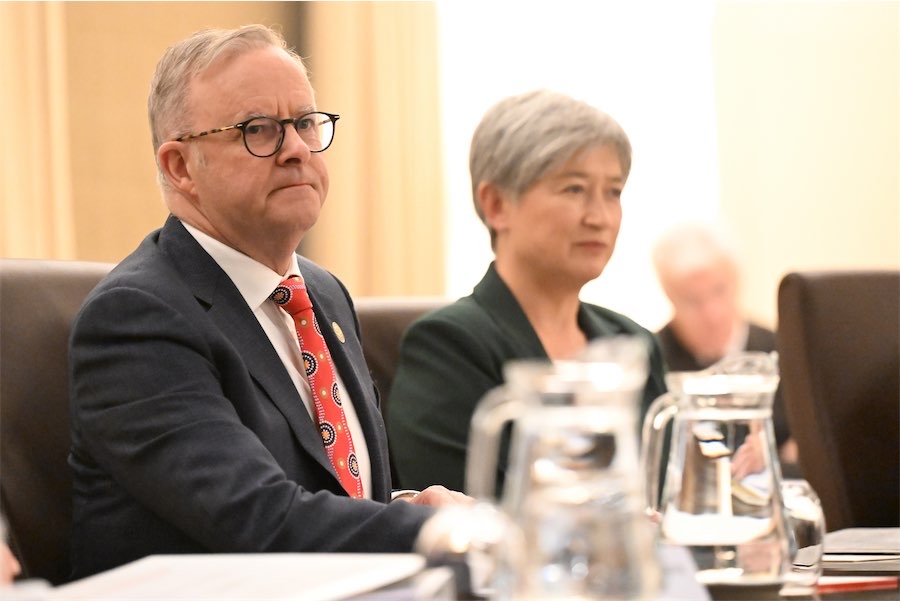“The average time taken for the FOI Act to have been applied in relation to the applications I lodged last year was at least six months, if not more. In other words, five months longer than prescribed by the Act,” writes JON STANHOPE.
I HAVE lately been thinking it is probably time for a good hard look at the efficacy of the ACT Freedom of Information Act.

Last year I lodged a few FOI applications with ACT government agencies. In all of them only a scattering of the documents identified as falling within the request were released. In each case I asked the ombudsman to review the decision to refuse access.
Indeed, I have adopted the practice when making an FOI application of an ACT government agency to prepare a draft of a letter to the ombudsman seeking review of the decision to refuse access to the documents in anticipation of the inevitable decision to refuse access.
In all of the cases in which I have asked the ombudsman to intervene he has ordered the release of a significantly greater number of documents than initially proposed by the agency.
What then is one to make of this?
If one was inclined to be generous it may be that the respective agency decision makers have been poorly trained, are new at the job or otherwise have simply failed to grasp the meaning or intent of the relevant provisions of the FOI Act. If one did not have a generous nature, there are doubtless other explanations that might spring to mind.
In any event, there is clearly, at a minimum, a need within the ACT Public Service for some pretty basic training in statutory interpretation. One of the consequences of the need to involve the ombudsman in order to have an FOI request resolved in accordance with the FOI Act is, of course, an inordinate delay in the release of the sought after information.
I haven’t done the maths, but I would guess that the average time taken for the FOI Act to have been applied as intended in relation to the applications I lodged last year was at least six months, if not more. In other words, five months longer than prescribed by the Act.
One possible amendment to the FOI Act that has occurred to me as I wait and wait and wait is the inclusion of a provision in the Act mandating review by the integrity commissioner of cases where the ombudsman has ruled that a decision by an agency to refuse access to documents was clearly or at least blatantly contrary to the FOI Act. I am sure such a provision would help concentrate the minds of all involved.
Having said that, I am one of those who, when contemplating a questionable or even a clearly dodgy decision by the government have always been inclined to think it was most likely a result of incompetence, naivety or inexperience rather than malevolence or corruption.
I have, in recent days, enjoyed reading the fruits of someone else’s resort to the FOI Act, namely the incoming ministers’ briefs prepared in light of the recent ACT election. You can find the documents online.
There is, regrettably, little in the briefs that is new or of great interest. It would probably have been a lot more efficient and cheaper for the respective ACT government agencies to have simply provided the ministers with a copy of their latest annual reports. However, the briefs do contain lovely colour photographs of the entire ACT government senior executive service. I am not entirely sure why they have been included, but they are cute.
The blandness and essential irrelevance of the incoming ministers’ briefs led to me wondering why they were prepared in the first place. They are copious but of extremely limited utility. I am sure they will have already been filed away, most likely in the circular filing bin under the desk.
Pondering why bother wasting so much time and effort to prepare them, it occurred to me that they are in all likelihood victims of the FOI Act. Their many authors would have been aware that the documents would attract an FOI request and be made public and they have been drafted with that knowledge in mind.
Having said that, there are nevertheless a few fascinating snippets or insights into issues that one imagines are causing some senior executives across the ACT public service some sleepless nights and they are quietly signalling their disquiet.
The Treasury, for instance, included the following terse note in its brief: “The current gap between spending and taxation is not, however, sustainable over the medium term, and as soon as practically possible the government will need to put in place a detailed strategy to return the budget to balance and start repaying debt.
“Standard & Poor’s, while reaffirming the ACT’s AAA credit rating, has indicated that downward pressure on future ratings could emerge if the ACT’s deficits turn out to be larger or more prolonged than expected, resulting in a steeper rise in the debt burden than currently forecast.
“Moreover, continuing to run deficits will reduce the government’s capacity to respond to any future economic shocks and if sustained lower the ACT’s capacity to access market finance putting at risk the government’s capacity to deliver services.”
In a similar vein, ACT Health has been very blunt (surprise, surprise) in its assessment of the capacity of our current hospital infrastructure and services to appropriately meet our health needs. More on that later.
Who can be trusted?
In a world of spin and confusion, there’s never been a more important time to support independent journalism in Canberra.
If you trust our work online and want to enforce the power of independent voices, I invite you to make a small contribution.
Every dollar of support is invested back into our journalism to help keep citynews.com.au strong and free.
Thank you,
Ian Meikle, editor




Leave a Reply